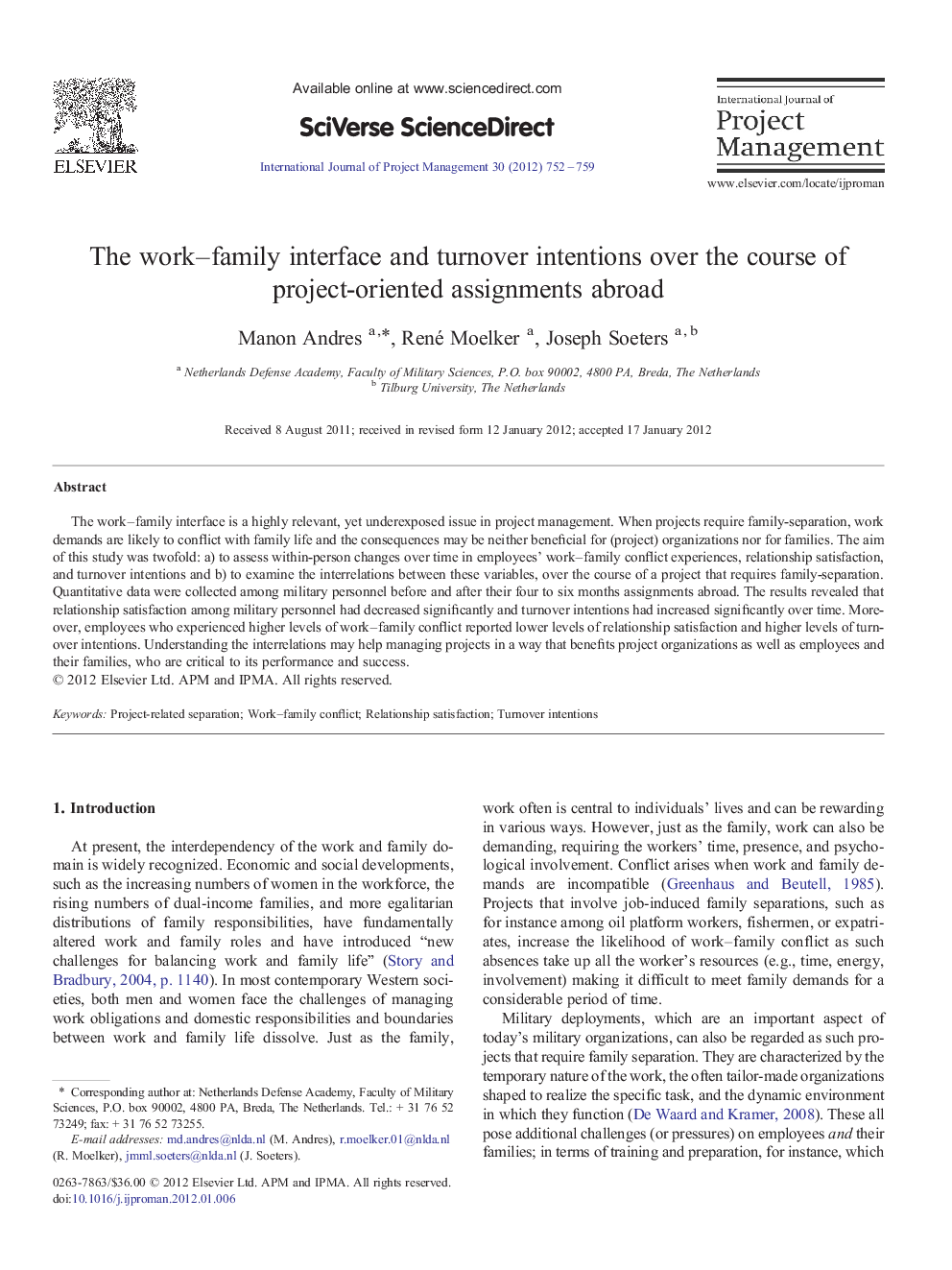| Article ID | Journal | Published Year | Pages | File Type |
|---|---|---|---|---|
| 275754 | International Journal of Project Management | 2012 | 8 Pages |
The work–family interface is a highly relevant, yet underexposed issue in project management. When projects require family-separation, work demands are likely to conflict with family life and the consequences may be neither beneficial for (project) organizations nor for families. The aim of this study was twofold: a) to assess within-person changes over time in employees' work–family conflict experiences, relationship satisfaction, and turnover intentions and b) to examine the interrelations between these variables, over the course of a project that requires family-separation. Quantitative data were collected among military personnel before and after their four to six months assignments abroad. The results revealed that relationship satisfaction among military personnel had decreased significantly and turnover intentions had increased significantly over time. Moreover, employees who experienced higher levels of work–family conflict reported lower levels of relationship satisfaction and higher levels of turnover intentions. Understanding the interrelations may help managing projects in a way that benefits project organizations as well as employees and their families, who are critical to its performance and success.
► We assess work–family conflict, relationship satisfaction, and turnover intentions. ► We examine how these variables change over time and interrelate. ► Employees' relationship satisfaction decreased significantly over time. ► Turnover intentions increased significantly over time. ► More work–family conflict relates to less satisfaction and more intent to quit.
